Kobe Is Gone—but in Today's NBA He Is Everywhere
Christian Wood was a toddler, a little giddy and a little mesmerized, when he first saw Kobe Bryant soar across his family’s television screen in Long Beach, Calif. At age four, he watched Bryant claim his first NBA championship. The next year, another. And another the year after that—his fandom accelerating with every dunk, crossover and fadeaway. Whatever the Lakers’ superstar did, young Christian tried to emulate.
“My childhood hero,” Wood says. “I wanted to be Kobe.”
At age 10, he watched Bryant score a mind-blowing 81 points against the Raptors. At age 20, Wood got to meet his idol, for just long enough to absorb a few words of wisdom. And at age 25, Wood—an NBA journeyman suddenly flirting with stardom—got a rare honor: the live, postgame interview on TNT’s Inside the NBA. The first question was about mindset, to which Wood, the starting center for the Houston Rockets, replied with a two-word phrase.
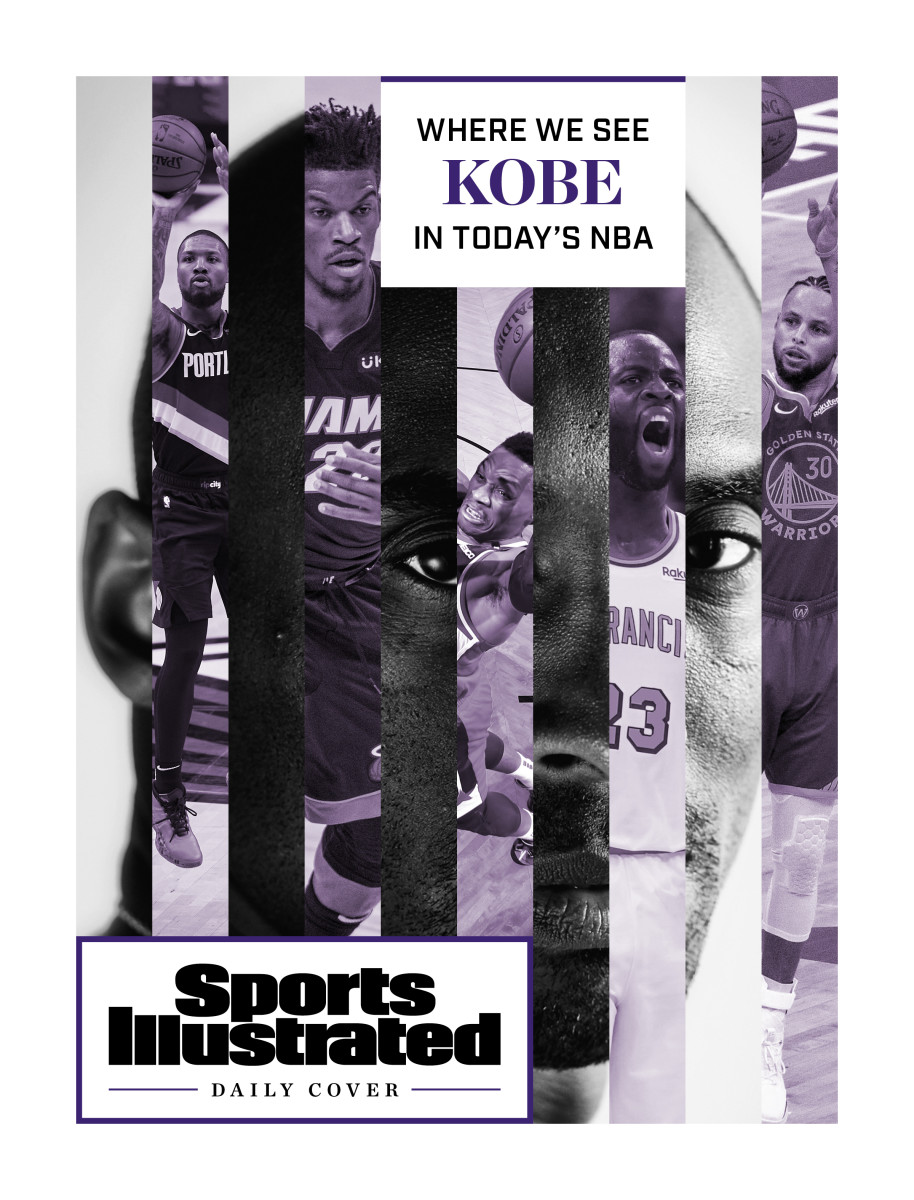
“Mamba mentality,” he said on the Jan. 14 broadcast, alluding to Bryant’s alter ego (the Black Mamba) and his ethos.
Wood would invoke the mantra three times in two minutes—a poignant reminder that Kobe Bryant, in ways both subtle and profound, is still inspiring and influencing today’s players—prodding, motivating, setting standards, shaping careers.
It’s been one year since a helicopter crash claimed Bryant, his daughter Gianna and seven others, sending shock and sorrow through the basketball world. To NBA veterans, Bryant was an admired, respected and feared rival. To younger players, he was an icon, a role model and, to many, a valued mentor.
“It’s still so hard for me to talk about, because it’s still very raw—and it’s raw for a lot of other people,” Nets star Kyrie Irving, who counted Bryant as a confidant, said in a recent interview. “And I know I’m not the only person feeling like this, because it’s just every single day is just thinking about him.”
Indeed, he could have been speaking for so many others. Jayson Tatum, the Celtics’ brilliant young star, considered Bryant a trusted adviser and friend. So did Kawhi Leonard and Damian Lillard and DeMar DeRozan and Devin Booker and Kevin Durant and Russell Westbrook and Carmelo Anthony and Trae Young and Giannis Antetokounmpo, and countless others.
Gaze across the league, and you will find Bryant’s imprint everywhere.
Norman Powell wears No. 24 in Bryant’s honor. So do Lauri Markkanen, Buddy Hield, Dillon Brooks, Pat Connaughton, Marques Bolden, Khem Birch and Devin Vassell. (Three others wear 24 for different reasons.)
Twenty-three players wear No. 8, Bryant’s original number, including 10 who chose it specifically because of him: Zach LaVine, Marcus Morris, Maurice Harkless, Wayne Ellington, Naji Marshall, Josh Green, Shaq Harrison, Dwayne Bacon, Jae’Sean Tate and Malachi Flynn.
Cleveland’s Lamar Stevens chose No. 8 for other reasons—but he has a “24” tattoo near his left calf in honor of Bryant.
Then there’s Utah’s Miye Oni, who chose No. 81 in part because of his home area code (818) and in part as a nod to Bryant’s 81-point masterpiece in January 2006.

Around 90 players wear “Kobes,” Bryant’s signature shoe, on a regular basis.
The admiration runs deep in this league, from the brightest stars to the fringe guys on two-way contracts. It’s not just the points Kobe scored, or the championships he won, or the sheer beauty in his game. It’s his spark, his drive, his ethos, his ferocity, his attention to detail, his obsessive dedication to the game. His Mambaness.
“I would say about 70 to 80% (of players) are living through what Kobe has put out,” says Wood, “and that’s just his mentality, it’s his approach to the game and just, you know, his winning mindset.”
“It was just his determination,” Wood says, “his determination to take the last shot, his determination to be the best on the floor and just the way he approached and was a leader at the same time.”
Look a little deeper, and you’ll find Kobe’s spirit still permeates the league, his best and boldest traits embodied by today’s stars.
That uncanny ability to get any shot, any time? You see it in Tatum.
The clutch-time bravado? You see it in Lillard.
The thunderous, soul-stealing dunks? That’s Westbrook.
The passionate advocacy for women’s hoops? Stephen Curry carries the torch.
The all-consuming work ethic? Jimmy Butler.
The say-anything candor? Draymond Green.
The obsessive film study? LeBron James.
The ultrasmooth midrange game? You see reflections in Booker, DeRozan, LaVine and Leonard.
And if you want to see the Mamba mentality personified, look no further than Wood, an undrafted prospect who was cut four times before blossoming into a star in this, his fifth season.
Bryant saw the potential. The two crossed paths in Philadelphia, in December 2015, when Wood was a 76ers rookie and Bryant was beginning his farewell tour. They chatted briefly in an arena tunnel while walking to the court before tip-off.
“He actually knew who I was as a rookie, which was surprising to me,” Wood says. “He told me I had a lot of talent, to keep going.”
Wood would be waived and re-signed twice by the Sixers that season, then bounce from Charlotte to Milwaukee to New Orleans to Detroit over the next four years. Now, his place in the league is secure, thanks to a renewed dedication, resiliency and work ethic—or as Wood puts it, “My whole approach to the game is Mamba mentality.”
No single player can replicate what Bryant did, or what he meant to the game. But here are five who best represent the best of Kobe.
As J.R. Smith wrote on Instagram: “The game misses your avatar but we all know your soul is all around it.”
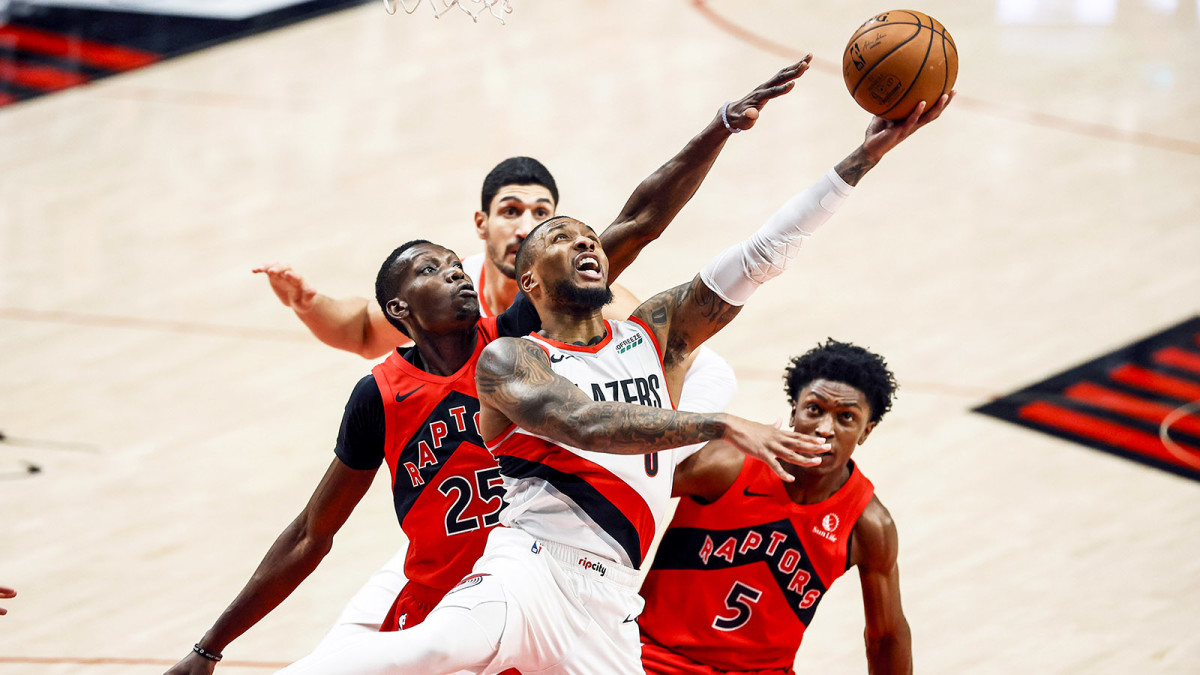
The clutch performer: Damian Lillard
Lillard hit his first game-winner, a buzzer beater, in his 23rd NBA game. He hit three more game-winners over the next 12 months. He clinched his first career playoff series with a buzzer beater that knocked out the Rockets.
From day one, Lillard has thrived in the biggest moments—a hallmark of Bryant’s career.
“What makes a great clutch shooter is confidence and fearlessness,” Lillard says. “I think everybody knows the work ethic of Kobe Bryant. … When you know you’ve put the work in and you’ve put the time in, you go into certain situations with a different level of confidence. Because you feel like you've got the right to be that confident.”
Lillard says he’s always been fearless, going back to his AAU days. He’s never lacked confidence, or a willingness to work. But it was Bryant who gave him a critical early lesson about preparation.
As an Oakland native, Lillard grew up a Warriors fan—but he idolized Bryant and rooted for the Lakers each spring, when his hometown team was nowhere to be found. He vividly recalls Bryant’s seizing control in overtime of Game 4 in the 2000 Finals, after Shaquille O’Neal had fouled out. He can still picture Bryant’s game-winner from the right elbow to beat the Suns in the 2006 playoffs.
“I had a Kobe jersey. I had the Kobe shoes,” Lillard says. “We all idolize Kobe.”
They struck up a friendship soon after Lillard arrived in the league, in 2012. After his fourth season, Lillard reached out with a critical question: What does it take to be a champion? As always, Bryant was generous with his advice.
“A lot of it had to do with film,” Lillard says. “He watched a lot of film on the best defenders and how they defended him. He watched full games. And he would always say, You will be surprised how often people do the same things. … And if you can learn people’s patterns, and you can learn their tendencies and habits, by watching them game after game, you’ll see that they do the same things, and you can take advantage of it. And you can manipulate that. Then I started to do that. That really helped me.”
No current star has assembled more dramatic, clutch-time shots than Lillard. His 37-foot buzzer beater to knock out Oklahoma City in 2019 is one of the most iconic shots of all time.
Even in a league bursting with talent and bravado, Lillard’s fearlessness and skill in the biggest moments set him apart—just as Bryant’s did in his time.
“I think it is rare,” Lillard says. “I think there’s guys in the NBA who have it, who truly have it, but I don’t believe everybody that the public might say has it. I don’t believe everybody has it. I think guys are talented and good enough to have moments. But I think the guys that you see do it time and time and time again are the ones who truly have it.”
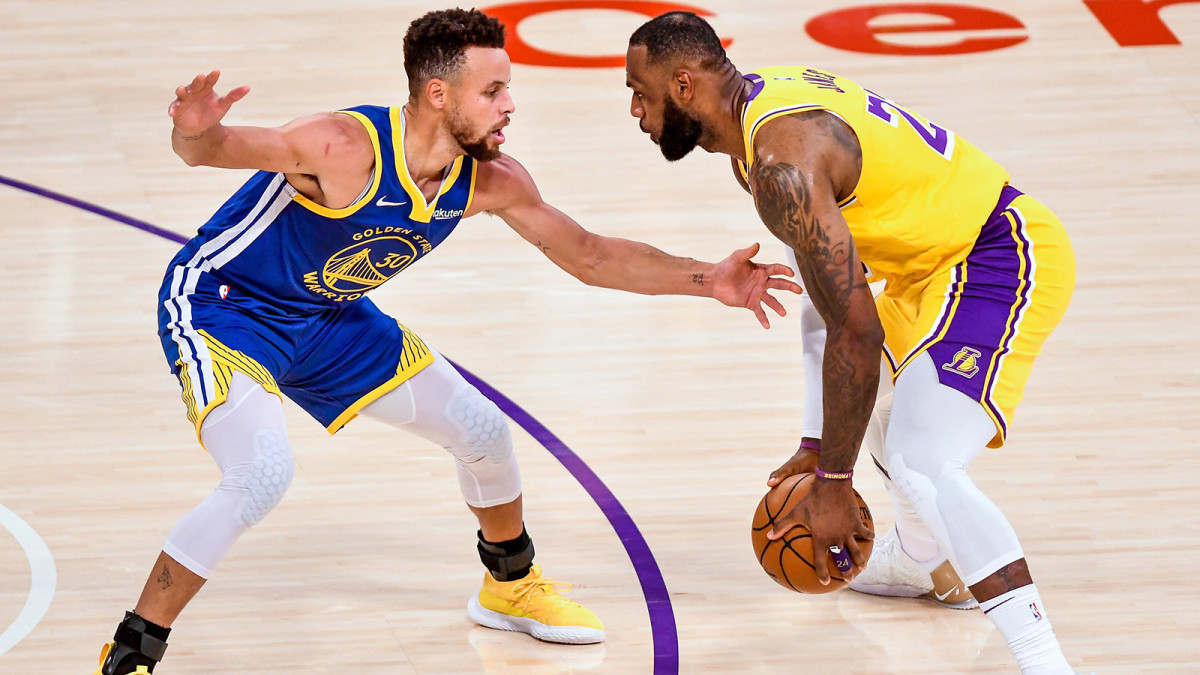
The WNBA advocate: Stephen Curry
It’s worth remembering where Kobe, Gigi and the others were heading last January: to the Mamba Academy, for a girls’ basketball game. With Kobe as their coach.
Over the years, Bryant had become a fierce advocate for girls’ and women’s hoops, and the WNBA in particular. He wasn’t the only NBA star to champion the women’s game, but he was surely the most influential of his time.
That responsibility now falls to another generation of stars, with Stephen Curry among those leading the charge.
Curry sponsors a free camp for 200 girls and young women. He’s worked with Under Armor to bring some of the top girls to his annual SC30 Select Camp. He’s written passionately about the need for pay equity and equal opportunities for women and girls.
“The fact that you have a guy like Kob, that was lending his platform, his voice, resources, his time to champion the women’s game, that obviously is a huge encouragement to continue that mission,” says Curry, who says his efforts were partially inspired by Bryant’s. “A lot of people really appreciate it more because of how Kobe celebrated and supported the game while he was here.”
Like Bryant, Curry is a proud “girl dad” who wants the best for his own daughters, eight-year-old Riley and five-year-old Ryan. He’s thought a lot about what their experiences will be like, whether they pursue basketball or other passions.
“There’s a huge opportunity to raise awareness around the women’s game, and involvement in youth sports, that can make a difference in somebody’s life,” Curry says.
The WNBA recognized Bryant’s efforts last year by creating the Kobe and Gigi Bryant WNBA Advocacy Award to honor those who make significant contributions to girls’ and women’s basketball.
Curry’s passion for the WNBA was stoked as a child, attending Charlotte Sting games with his father, Dell (then playing for the Hornets), cheering for Andrea Stinson and Dawn Staley. “It was a pretty dope environment there at the old Hornet Coliseum,” he says.
Curry’s involvement today includes mentoring Liberty star Sabrina Ionescu, who had also been closely tutored by Bryant.
“The way that she emulated Kob, in terms of how she approached the game, and her killer instinct and attitude, and just how he resonated with her, and obviously her growing up out here in the Bay and watching me play, there’s definitely a connection there,” Curry says. “It’s pretty awesome to know that, obviously, after his tragic death, that that connection grew even stronger with me and her, just in terms of the opportunity to take what Kob was doing and what his legacy will continue to do in the women’s game and carry that torch.”
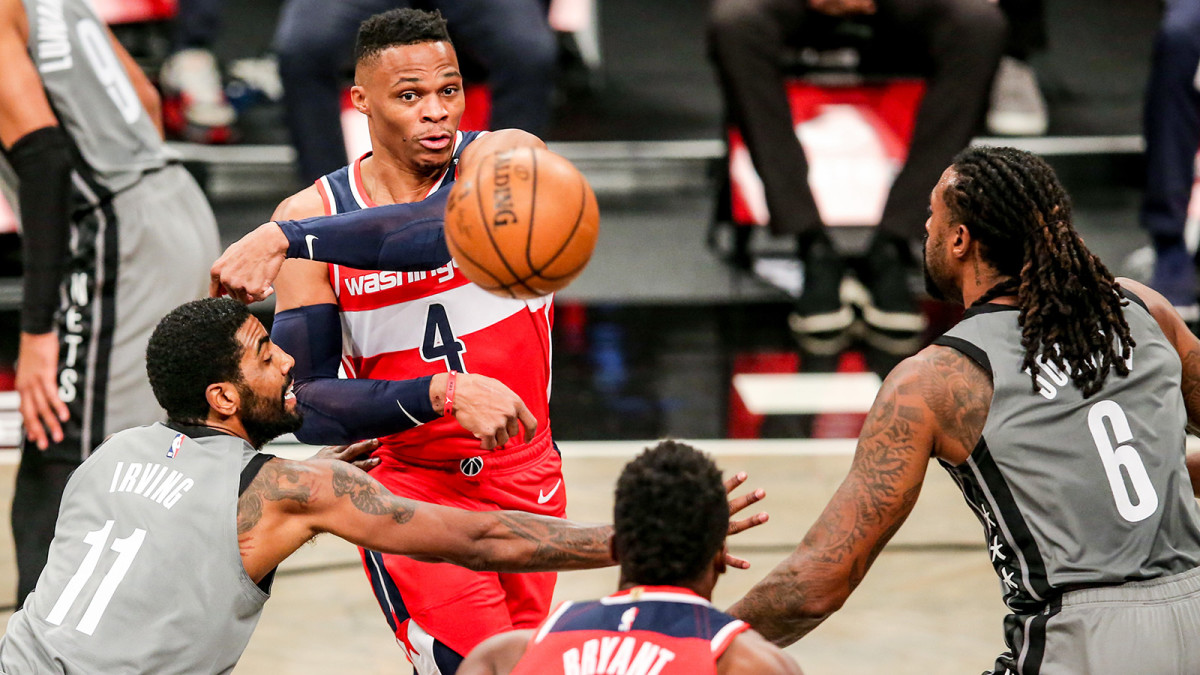
The vengeful dunker: Russell Westbrook
Bryant dunked with ill intent. He made that clear throughout his career, and made it explicit in his 2018 book, The Mamba Mentality.
“Dunking,” he wrote, “is about domination.”
It’s about a mentality, Bryant asserted. About setting a tone. About letting the opponent know, “You’re there to humiliate them.”
Those sentiments could have just as easily come from Russell Westbrook.
“Their intent feels the same,” says Jamal Crawford, who had to check both stars over his 20-year career. “The passion [Westbrook] shows after the dunk is almost exactly the same. It’s almost like he’s imposing his will as well with that.”
Antetokounmpo dunks forcefully and often. James slams with style and power. Joel Embiid relishes the timely jam. But no current player dunks to destroy like Westbrook does.
“Russell had the ability to intimidate the opponent with his aggressive tenacity towards the rim,” says Scott Brooks, who coached Westbrook through his first seven years. “And he treated the rim like an opponent.”
Westbrook will always be remembered for his 2016–17 MVP campaign, his triple doubles and his dizzying assault on the record books. But it’s the assaults on the basket, and anyone standing nearby, that will be forever seared in our memories.
Crawford immediately recalls a moment early in that MVP season, when Westbrook—rendered a solo act in Oklahoma City by Kevin Durant’s departure—viciously threw down a left-handed dunk on Houston’s Clint Capela to seal a victory.
“It's demoralizing,” Crawford says, “and he’s trying to demoralize you.”
That was Bryant’s enduring mission, whether he was slamming an impossible reverse dunk against the Knicks at age 24, or demolishing the Nets’ frontcourt at age 34.
Every Westbrook drive is a potential highlight clip, every dunk worth the price of admission—and every one of them a statement, a show of superiority. A timely slam on the home court electrifies the whole arena. On the road, it can crush 20,000 spirits at once.
“Like he’s just punking the whole gym,” Crawford says. “It’s an unbelievable weapon to have.”
The aftermath of a Westbrook dunk can be just as potent: the stomping, screaming, chest-beating, glowering, snarling. And though the physical histrionics might rub some the wrong way, you can bet Westbrook does not care about anyone’s feelings.
“He’s one of the few guys, like Kobe Bryant, he wasn’t out there to make friends,” Brooks says. “And that was part of the Mamba mentality.”
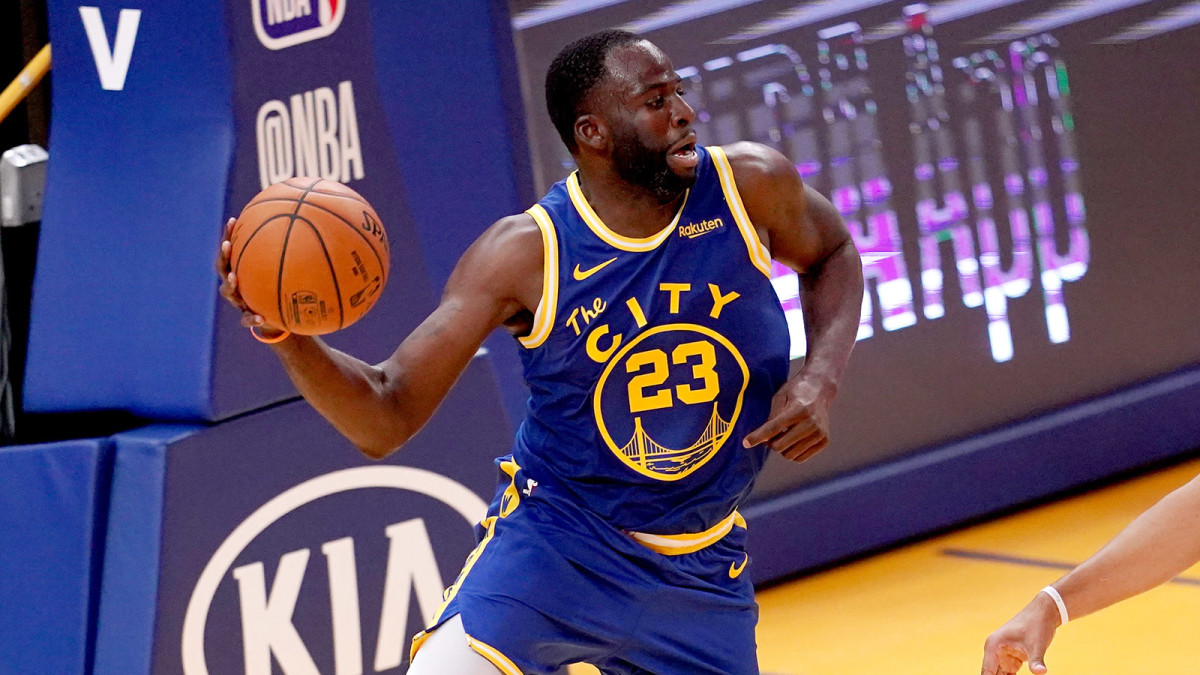
The voice of candor: Draymond Green
Green has opinions on NBA policies and rules, media coverage, referees, teammates, coaches, opponents, league relations with China, police reform, the Capitol insurrection and, well, too many other topics to list here.
And he’s willing to speak candidly on all of it, no matter how touchy the subject or how uncomfortable it might make anyone else.
“I have always been outspoken,” Green says. “I’ve always been comfortable using my voice.”
That’s a rare trait in this NBA era, where players are hyperconscious of their personal brand, and an army of PR people and image consultants are constantly advising them to play it safe.
But Green rarely worries about backlash or controversy, which is a very Mambaesque quality. Candor and bluntness were prime features of Bryant’s press gaggles, especially in his later years.
“That was something that always struck me, that Kob was going to say however he felt, whenever he felt that,” Green says. “And he wasn’t gonna bite his tongue for anyone.”
Outspoken players are often mischaracterized as controversial, as if their sole aim is to cultivate conflict. But Green, like Bryant, is just brutally honest, thoughtful and unafraid to express himself, whether on basketball or anything else.
“I refuse to be held hostage to the public’s opinion,” Green says. “Regardless of what someone thinks, if I feel a certain way, I’m going to express that. And I don’t really care what the response to what I say is.”
That same bluntness comes into play on the court, whether Green is confronting a teammate about a blown play or teaching them in real time. That tough-love leadership also echoes Bryant’s approach.
“My mom was very adamant that we use our voices,” Green says. “If there was ever anything that we had to say, she would encourage us to say it, and regardless to who it was to. ... If you’re telling the truth, you’re just telling the truth.”
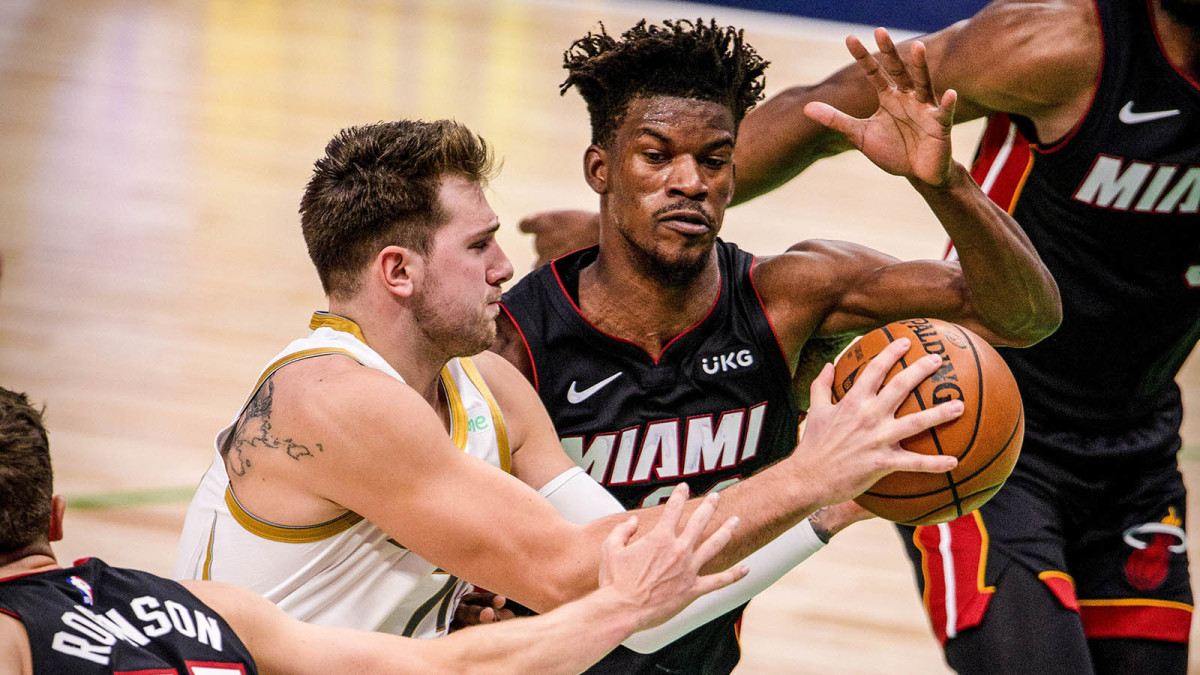
The workout fiend: Jimmy Butler
Every player who’s achieved a measure of NBA stardom worked hard to reach these lofty heights. But not everyone’s definition of “work ethic” is the same.
There’s work. And then there’s maniacal, all-consuming, eat-breathe-sleep, all-hours-of-the-day-and-night work.
“My midnight workouts have become a thing of legend,” Bryant wrote in The Mamba Mentality. “They were always purposeful. They were born from a mix of obsession and real-world responsibilities. I always felt like if I started my day early, I could train more each day.”
Jimmy Butler lives a similar credo, even in the offseason, even when he’s purportedly on vacation, even when that vacation is on one of the world’s most gorgeous beaches.
A few years ago, Butler took a trip to Mykonos, Greece, accompanied by his friend (and NFL star) Demaryius Thomas; his cousin Marqueese Grayson; his trainer, James Scott; and his agent, Bernie Lee.
They landed around 10 p.m., had a late dinner and stayed up all night playing cards and dominoes. Around 7:30 in the morning, Lee decided to get some sleep. Butler had other ideas: “Meet us in front in 10 minutes. We’re going to work out.”
Ten minutes later, the entire traveling party was on the beach to get in a 90-minute session before it got too hot.
“It was the hardest hour and a half of my life,” Lee says. “It had to have been 120 degrees on this stupid beach. The sand was like the size of like salt grains, like you couldn’t run on it. And we went through a workout as if we were like Navy SEALs, or like the world was ending the next day.”
Only Butler and Thomas made it all the way through, and Thomas “looked like he was going to die,” Lee says. “And I remember when we got done, Jimmy walked back to the car is if nothing had happened, as if we did like a Peloton class or something.”
Butler, who rose from the 30th pick in the 2011 draft to an NBA superstar through sheer will, clearly needed no outside prodding to develop his work ethic. He never spent much time in Bryant’s direct orbit. But he heard the stories of Bryant’s legendary, almost mythical approach while playing for USA Basketball. It had an impact.
“If you competed against him, you realized there was truth behind the myth,” Lee says. “It seems like a very simplistic thing from a work ethic standpoint to aspire to. And then once you start doing it, you do realize how difficult what he did actually is.”
